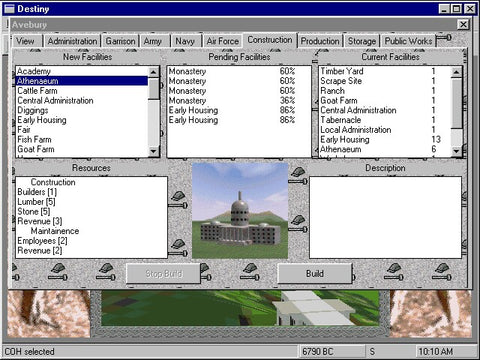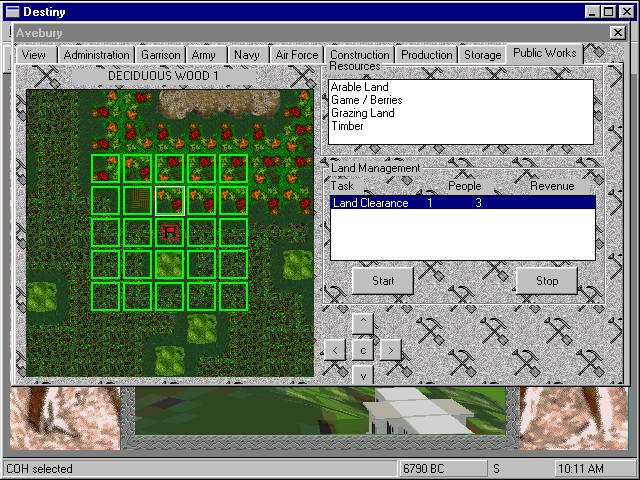

Since the game is supposed to compete with Civilization 2, it's hard not to be compared. Already the introduction of real time makes the game completely different (for those who would prefer it to be the same as in Civ2, there is a possibility to switch the game into turn-based). At first, not much happens, but when we have a dozen or so developed cities under our supervision, we have something to do. Managing this mess is made easier by the managers, but they only care about providing the inhabitants with shelter, food and a relatively high level of education. Planning the city's development rests on the player's shoulders. The economy consists of discovering, sourcing and processing natural resources. Everything takes place within city limits, and these borders are variable. Building certain institutions allows the city area to be extended nine times in relation to the initial area, which in turn allows for increasing and diversifying production. This solution seems more sensible than the one proposed in Civ 2, i.e. gradually increasing the efficiency of each field in the city.

Scientific research also looks a bit different. The scientific potential, as in Civ 2, depends on the size of the country's population. The game has been clearly divided into eras defined by the level of education of the society. So it often happens that when we reach the next level of education, we have a lot of new theories or technologies waiting to be discovered, but at the end there is peace and quiet, because everything we were supposed to invent has already been invented! Such rationing did not make the best impression on me. I am more comfortable with the evolutionary approach known from Civ 2, where there was always something to discover and the subsequent periods intertwined. One should praise the not very specific names of subsequent inventions (eg Mathematics level V allows us to invent Mathematics level VI). In Civ 2, everything was concrete, which may have been fun, but it forced very far-fetched translations that something resulted from something (absurdities came out that, for example, the invention of trade unions allows to produce mechanized infantry).

Military in Destiny looks more impressive than in Civ 2. In both games we have land, sea and air forces, we can set up garrisons in cities. However, in Destiny, each squad consists of 10 units, the type of which can be selected from a certain collection (its elements depend on the type of army, its technical level and resources needed to build equipment for units). The fights are played in real time in 3D terrain. In terms of playability, they are better than those of Civ 2, because they take into account the player's command skills, they do not only rely on the strength of units, modified by the luck factor in combat. One could write about Destiny's advantages for a long time, but the game also has a second face that needs to be mentioned. In the production rush, the authors forgot to refine the details: there are typos in the menu, some descriptions in the frames end up dramatically in half a word, and the frames flicker for a while before they disappear from the screen. In some cases, there is also a lack of consistency in the design of subsequent inventions (someone indicate why introduce Christianity?). No more complaints. Destiny is one of the few and very ambitious attempts to face the myth of Civ2. And although it cannot be classified as completely successful, it deserves recognition.
My rate: 6/10.